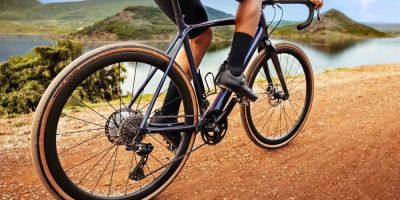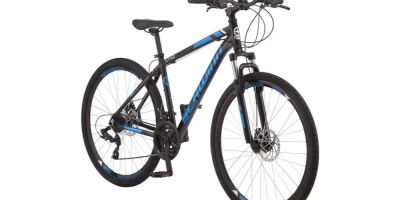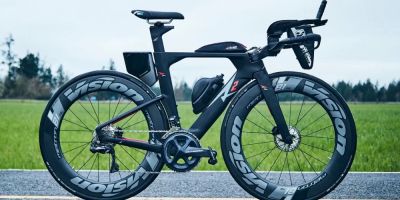How to Prepare for Long-Distance Cycling: My Personal Experience
Long-distance cycling isn't just a hobby; it's a passion that takes you through the heart of nature, pushing your limits and helping you explore places you’d never reach by car. I remember my first long-distance bike tour across the USA. The idea seemed simple at first, but once I got started, I quickly realized how much preparation was required. From choosing the right bike to knowing how to pace yourself over the miles, it's a journey that’s as much about mental strength as it is about physical endurance.

Retro City Cycles - Longwood
355 N Ronald Reagan Blvd UNIT 1031, Longwood, FL 32750, USA
1. Choose the Right Bike for the Job
It all starts with the bike. The right bicycle can make or break your trip. You need a bike that is comfortable, durable, and equipped to handle long hours on different terrains. When I first started planning my tour across the USA, I spent hours researching bikes. Ultimately, I chose a touring bike, which was specifically designed for long-distance trips. These bikes come with sturdy frames, reliable gears, and mounting points for panniers, which are essential for carrying your gear. If you're new to long-distance cycling, a road bike can also work, but be mindful of the terrain you plan to ride on.
2. Pack Light, But Smart
One of the hardest lessons I had to learn was how to pack. I made the mistake of overpacking my first few rides, and it wasn't until halfway through my trip that I realized how much extra weight I was carrying. Every pound counts on a long-distance tour. I recommend packing only the essentials: a compact tent, sleeping bag, clothes for a few days, and the necessary tools for bike maintenance. It's tempting to bring extra comfort items, but remember, you’ll be riding long hours, and extra weight can take a toll on your performance. Lightweight panniers or a bike trailer will help distribute the load evenly.
3. Proper Cycling Gear and Maintenance Tools
Investing in good gear is crucial for a smooth cycling experience. From padded shorts to cycling gloves, your comfort will greatly impact your performance. On my first tour, I underestimated how important padded cycling shorts were, and believe me, they’re not something you want to skip on long rides. Similarly, ensure you have the right shoes that provide comfort and good power transfer to the pedals. Don't forget about a helmet; your safety is paramount. Bring along maintenance tools such as a tire repair kit, chain oil, and a pump. I've had situations where I had to fix flat tires or adjust my gears on the go, and having the tools made a huge difference.
4. Train Your Body for Endurance
Endurance is everything when it comes to long-distance cycling. In the months leading up to my first major ride, I committed myself to a serious training regimen. It’s not just about building leg strength but also about improving your cardiovascular endurance. I started with shorter rides, gradually increasing the distance and time on the bike. A big part of training is learning to pace yourself—going too fast in the beginning can burn you out before you even get to the halfway point. Incorporate hills and varied terrain into your training, and always listen to your body. Rest and recovery are equally as important as riding itself.
5. Hydration and Nutrition Are Key
Hydration and nutrition can make or break a long-distance ride. On my early tours, I failed to hydrate properly, which led to fatigue and cramping. I quickly learned that carrying enough water and consuming small snacks throughout the day were essential for maintaining my energy levels. I usually carry an energy bar or a small sandwich to snack on every hour, keeping my blood sugar steady. Electrolyte tablets in your water bottle can also help prevent cramps and dehydration. Be sure to stop and refuel often—your body needs fuel to keep moving!
6. Understanding Weather Conditions
The weather is one of the most unpredictable aspects of long-distance cycling. I remember cycling through the Midwest, where I was hit by an unexpected thunderstorm. It wasn’t the most pleasant experience, but it taught me the importance of checking weather forecasts and being prepared for sudden changes. Always pack for varying weather conditions. A lightweight rain jacket, sunscreen, and windbreaker are items that can make your ride more comfortable. Additionally, adjusting your riding times based on weather can help you avoid riding during the hottest parts of the day or during storms.
7. Rest Days and Mental Preparation
Long-distance cycling isn’t just about physical stamina; it's also a mental challenge. As you cycle for hours on end, your mind can start to wander, and fatigue can set in. One thing I learned the hard way was the importance of taking rest days. You can’t keep pushing yourself every single day without giving your muscles time to recover. Plan your route with a few days of rest so you can recharge. When I reached halfway through my trip across the USA, I felt completely exhausted, but after a full day of rest, I felt rejuvenated and ready to keep going.
8. Navigating Your Route
Finding the right route for your long-distance cycling journey is essential for a successful trip. I used a combination of maps and GPS apps to navigate through the country, but I also made sure to have physical maps as a backup, just in case. Some regions of the USA are more bike-friendly than others, so it’s crucial to research your route. I recommend looking for bike tours or established cycling routes, like the TransAmerica Trail, which is known for its scenic beauty and bike-friendly roads. Remember to plan your route based on your daily mileage goals, and take into account potential detours or areas where cycling conditions might be difficult.
9. Building a Support Network
Long-distance cycling is much more enjoyable when you have a support system. Whether it’s friends, family, or online cycling groups, knowing that you have people who support your journey can be a huge motivator. I connected with other cyclists during my travels, and their advice and encouragement made all the difference. There are also plenty of cycling communities on social media and apps like Strava, where you can share your progress, seek advice, and find people to ride with.
10. Keep a Journal or Blog of Your Journey
Finally, one of the most rewarding aspects of long-distance cycling is the memories you create along the way. I kept a journal of my daily rides, documenting not only the challenges but also the amazing places I visited and the people I met. If you enjoy writing, consider starting a blog or a vlog to share your journey with others. It’s a great way to relive the experience and inspire others to take up long-distance cycling themselves.










